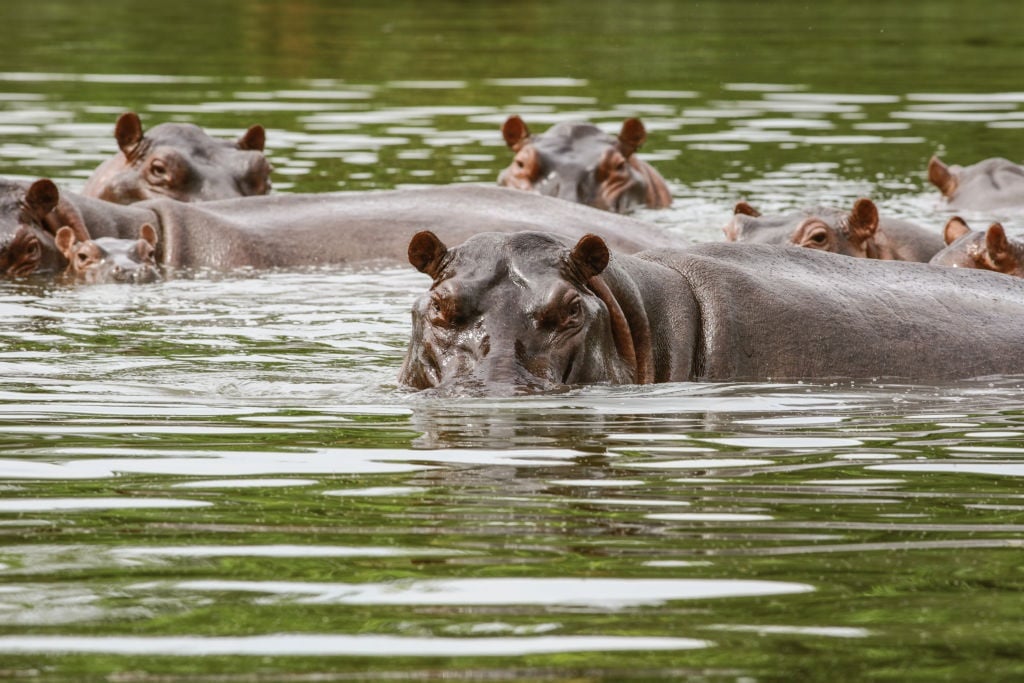
Hippos swimming close to the Magdalena River in Doradal, Colombia on 29 March 2022. Colombian authorities declared deceased drug lord Pablo Escobar’s herd of ‘cocaine hippos’ an invasive species as a way of tackling their growing numbers. (Juancho Torres/Anadolu Agency via Getty Images)
Bogot – A Colombian court on Friday called for the hunting of hippos, introduced to the country in the 1980s by drug kingpin Pablo Escobar.
The Administrative Court of Cundinamarca set a three-month deadline for the Ministry of Environment to issue “a regulation that contemplates measures for the eradication of the species”, which is affecting the area’s “ecological balance”.
READ | Health in a hotter world: Climate change likely to impact disease spread, conservation experts say
In their homeland Africa, the animals are responsible for more human deaths than almost any other animal, but in Colombia, the hippopotami have become loved members of the local community and a tourist attraction.
They’ve also been increasingly posing problems for the local community near Escobar’s old ranch in Antioquia state – one that experts worry may soon turn deadly.
After Escobar’s death, the animals – referred to as Escobar’s “cocaine hippos” by some – from his private zoo made their way into nature, in an area of abundant vegetation, where there are no predators. There are now some 166 of the two-ton beasts wandering freely.
READ | Threatened cranes of the Drakensberg: Carbon credits to fund habitat protection
Attacks on fishermen have been reported on the Magdalena River, and experts argue manatee populations could be threatened – though animal rights activists and tourism workers oppose hippopotamus hunting.
The court specified that measures to eliminate the hippos should include “controlled hunting and sterilisation”.
The environmental ministry had already announced last year plans to sterilise part of the population, while euthanising others, as part of an effort to contain the growing number of hippos.
The sterilisations have proceeded slowly, while no cases of euthanasia have been carried out.
Plans to move the animals to Mexico, India or the Philippines have also floundered.

